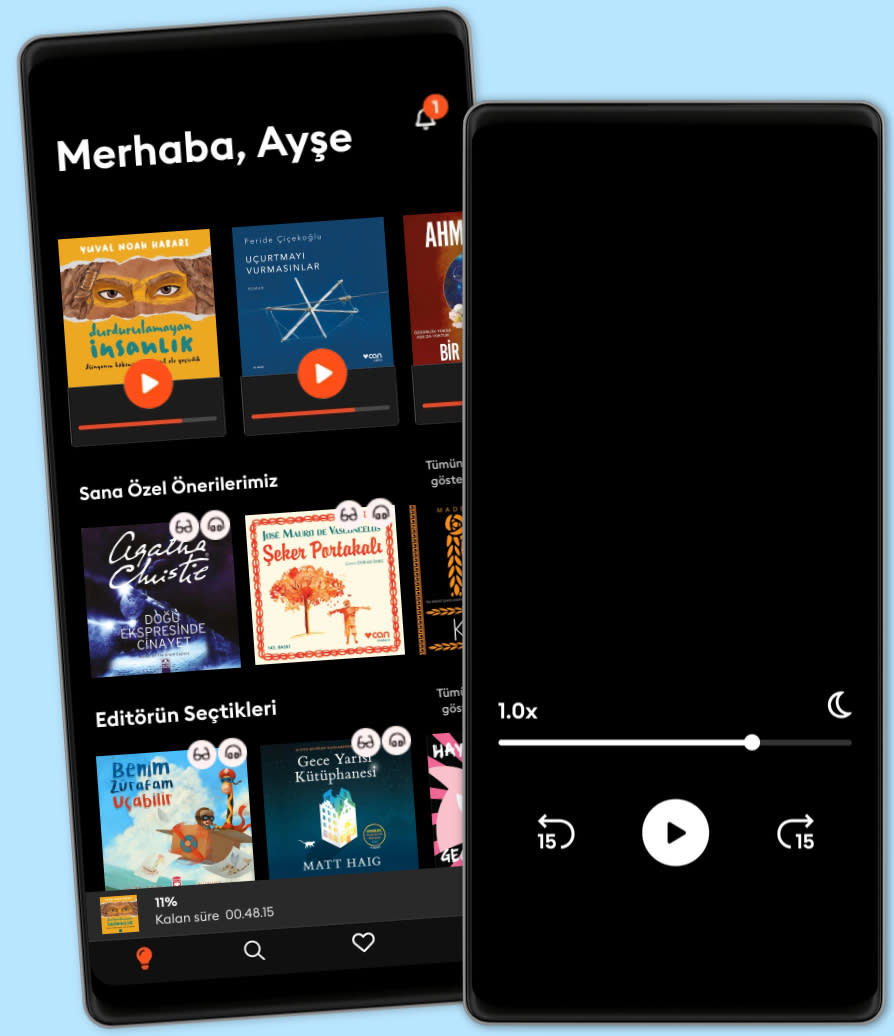Dinle ya da oku
Sesli kitapların büyülü dünyasına adım at.
- İlk 2 ay ₺99,99/ay
- Binlerce sesli kitap ve e-kitap.
- Dilediğin kadar dinle ya da oku.
- Çevrimdışı modu.
- İstediğin zaman iptal et.

What Is Metaphysics, What Is Philosophy and Other Writings
- Yazan
- Seslendiren
- Yayınevi
- Süre
- 4sa 24dk
- Dil
- İngilizce
- Format
- Kategori
Kurgu Dışı
This recording contains four important and related works by Heidegger: 'What Is Philosophy', 'What Is Metaphysics', 'On the Essence of Truth' and 'The Question of Being'.
It starts with 'What Is Philosophy', which originated as a lecture given in Normandy in 1955, and was first published a year later. The translators acknowledge that 'What Is Metaphysics' is often regarded as a particularly key work, they feel that 'a better preliminary understanding' of Heidegger can be obtained from 'What is Philosophy'. They write: Heidegger 'is concerned with the fact that philosophy has lost its receptivity to the Being of being/entity. In other words, philosophy no longer seeks the groundless ground of Being which allows us to ask meaningful questions about being/entity, or its appearances. Heidegger uses Being as the ‘inner light’, that illumination through which we become conscious of our meaning or of our existence and of existence itself. The light allows us to know that we are 'beings'.
The second work on this recording, then, is the more famous essay 'What Is Metaphysics', published in 1929, to which some 14 years later he added a 'Postscript'. Both texts are presented here. Heidegger states that rather than enter into a discussion about metaphysics, he sets out to ‘discuss a definite metaphysical question.... Our project begins with the presentation of a metaphysical question, then goes on to its development and ends with its answer'.
In 'On the Essence of Truth', (1930) Heidegger explains: 'The question as to the nature of truth is not concerned with whether truth is the truth of practical experience or of economic calculation...or the truth of scientific research or art...or religious belief...but what is ‘the mark of truth of every kind.'
The final essay on this recording is 'The Question of Being' (1955). Its original title, (in a literal translation from German), was 'Concerning the Line', and was included in a publication honouring the 60th birthday of the philosopher Ernst Jünger. Heidegger wrote it in the form of a letter in response to an earlier treatise Jünger dedicated to Heidegger called 'Across the Line'. Heidegger questions Jünger’s notion of ‘zero line’, of nihilism: the essence of nihilism stems from a discussion of Being as being/entity.
Translations by Jean T. Wilde and William Kluback ('What Is Philosophy' and 'The Question of Being') and R. F. C. Hull ('What Is Metaphysics' and 'On the Essence of Truth').
© 2022 Ukemi Audiobooks from W. F. Howes Ltd (Sesli Kitap): 9781004134786
Yayın tarihi
Sesli Kitap: 3 Mart 2022
Etiketler
Bunları da beğenebilirsin...
- Heidegger: A Very Short Introduction, 2nd edition Michael Inwood
- Ideas Edmund Husserl
- Kant and the Problem of Metaphysics Martin Heidegger
- Time and Free Will: An Essay on the Immediate Data of Consciousness Henri Bergson
- Heidegger: Philosophy in an Hour Paul Strathern
- Philosophy of Mind Georg Wilhelm Hegel
- Philosophical Investigations Ludwig Wittgenstein
- Matter and Memory Henri Bergson
- Dialogues Concerning Natural Religion and The Natural History of Religion David Hume
- The Myth of the Framework: In Defence of Science and Rationality Karl Popper
- Rezonans Kanunu Pierre Franckh
4.3
- Dünyanın En Önemli Öğrencisi Şermin Yaşar
4.7
- İnce Memed 1 Yaşar Kemal
4.9
- Yırtıcı Kuşlar Zamanı Ahmet Ümit
4.7
- Beni Gözünüzde Büyütmeyin! Gülse Birsel
4.6
- Palto Nikolay Gogol
4.6
- Kral Kaybederse Gülseren Budayıcıoğlu
4.7
- 4 Gün 3 Gece Ayşe Kulin
4.1
- Gece Yarısı Kütüphanesi Matt Haig
4.6
- Bir Delinin Hatıra Defteri Nikolay Gogol
4.3
- İnce Memed 2 Yaşar Kemal
4.8
- İnce Memed 3 Yaşar Kemal
4.9
- Kürk Mantolu Madonna Sabahattin Ali
4.5
- Harry Potter ve Felsefe Taşı J.K. Rowling
4.3
- Rezonans Kanunu Şifre - Gerçeklik ve Enerji Yasası Bpm Team
4.3
Storytel dünyasını keşfet:
Kids mode
Çevrimdışı modu
İstediğin zaman iptal et
Her yerde erişim
Sınırsız
Sınırsızca dinlemek ve okumak isteyenler için.
1 hesap
Sınırsız erişim
İstediğin zaman iptal et
Sınırsız Yıllık
Sınırsızca dinlemek ve okumak isteyenler için.
1 hesap
Sınırsız erişim
İstediğin zaman iptal et
Aile (2 hesap)
Hikayeleri sevdikleri ile paylaşmak isteyenler için.
2 hesap
Sınırsız erişim
İstediğin zaman iptal et
Aile (3 hesap)
Hikayeleri sevdikleri ile paylaşmak isteyenler için.
3 hesap
Sınırsız erişim
İstediğin zaman iptal et
Türkçe
Türkiye